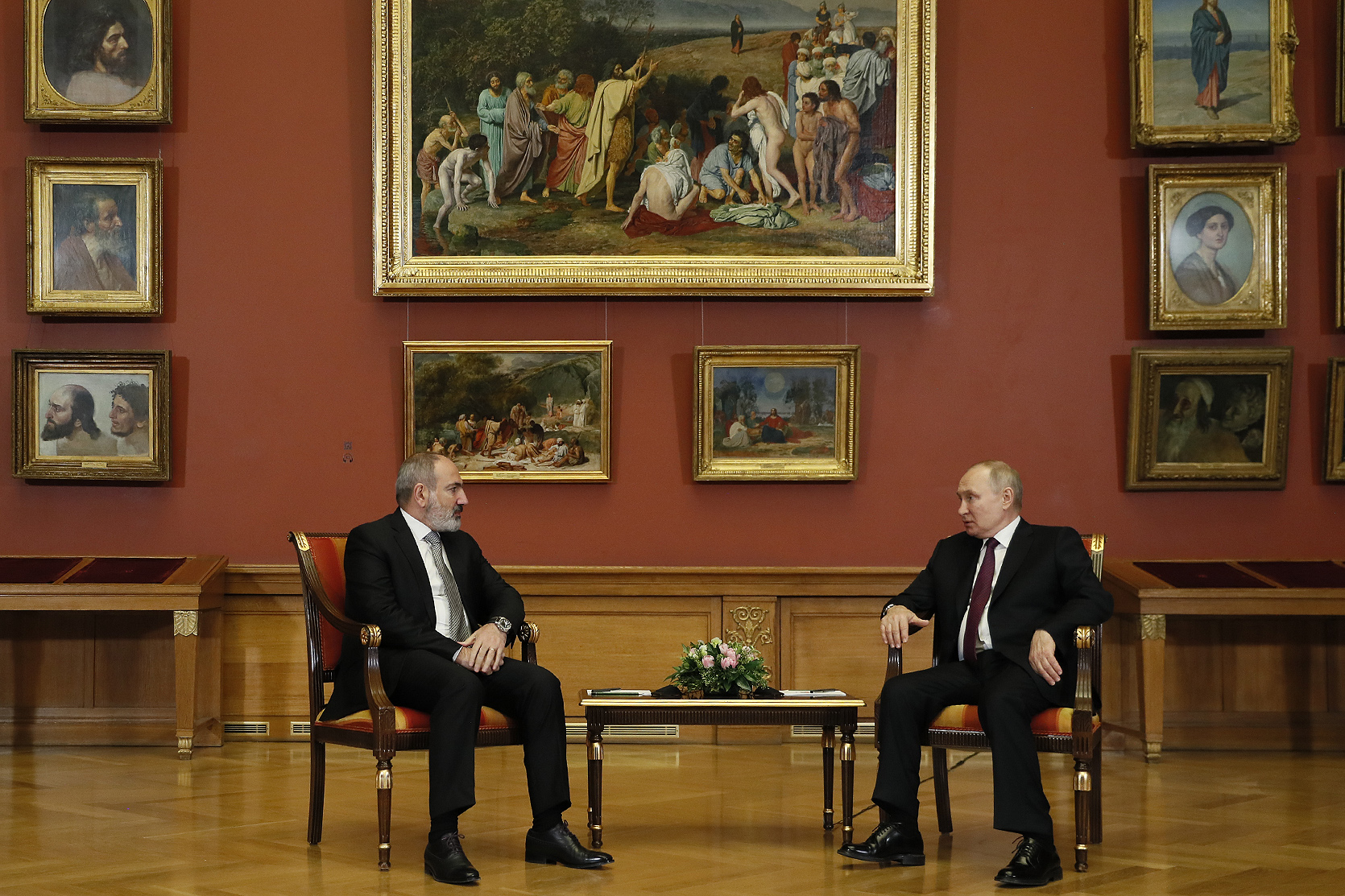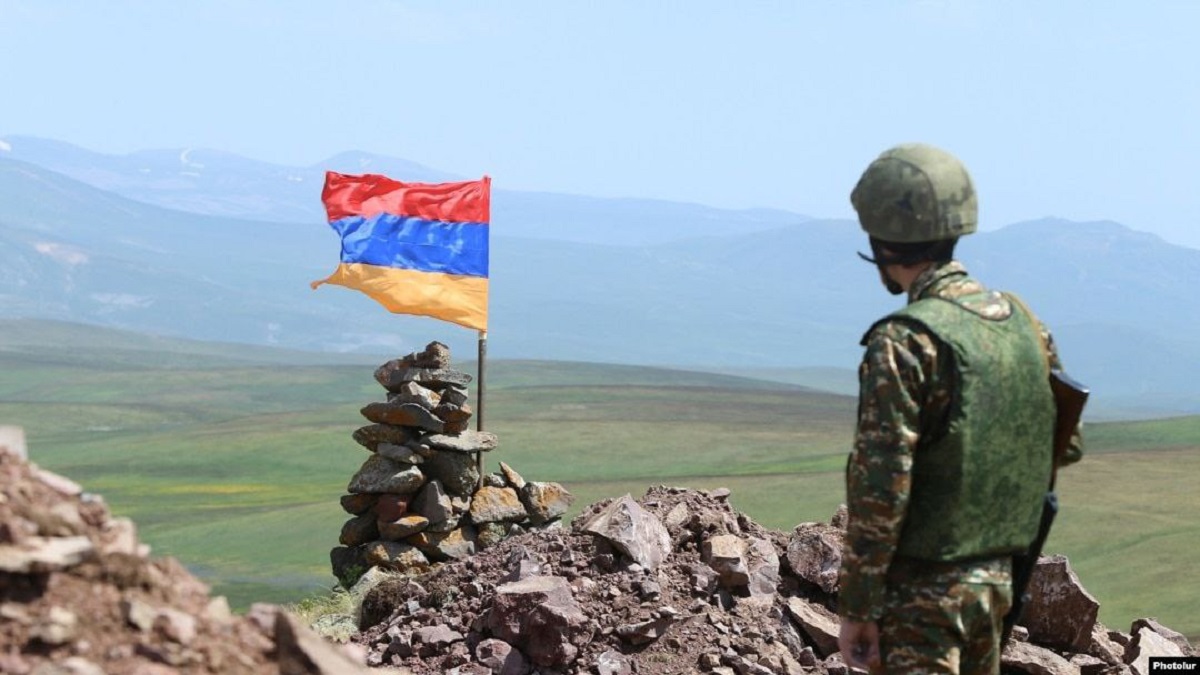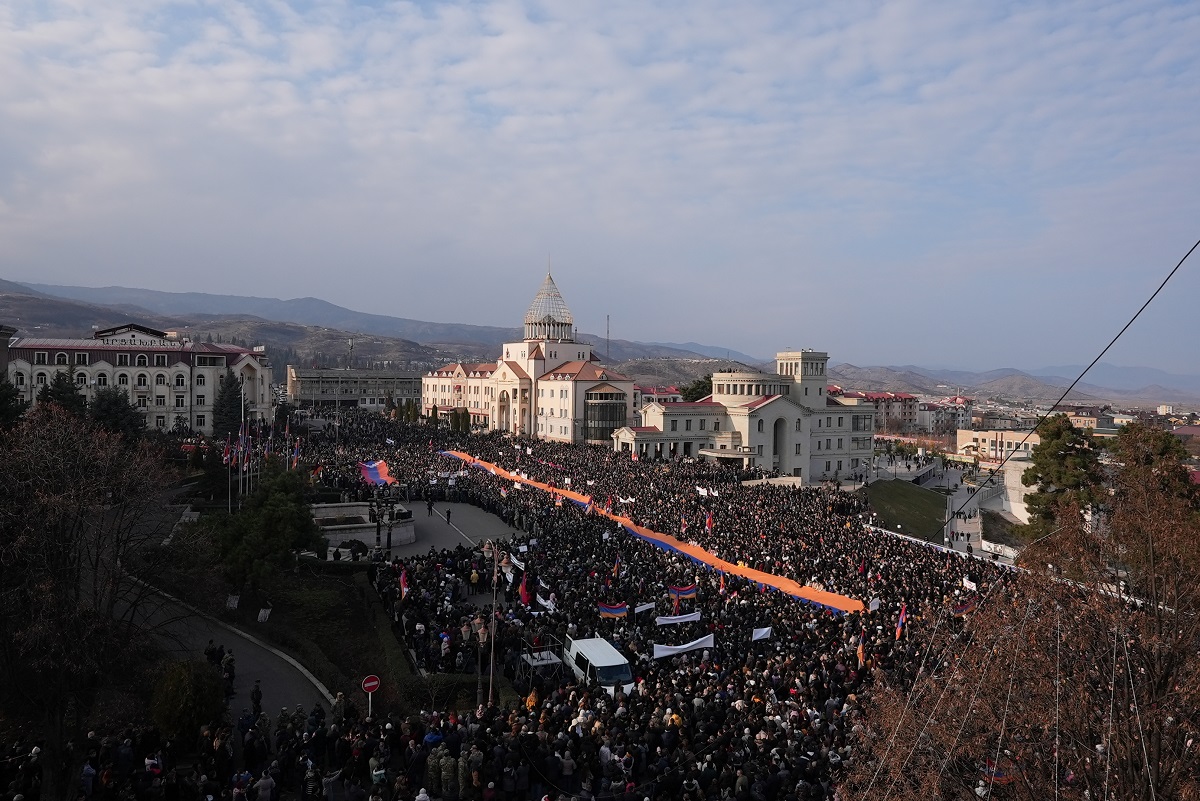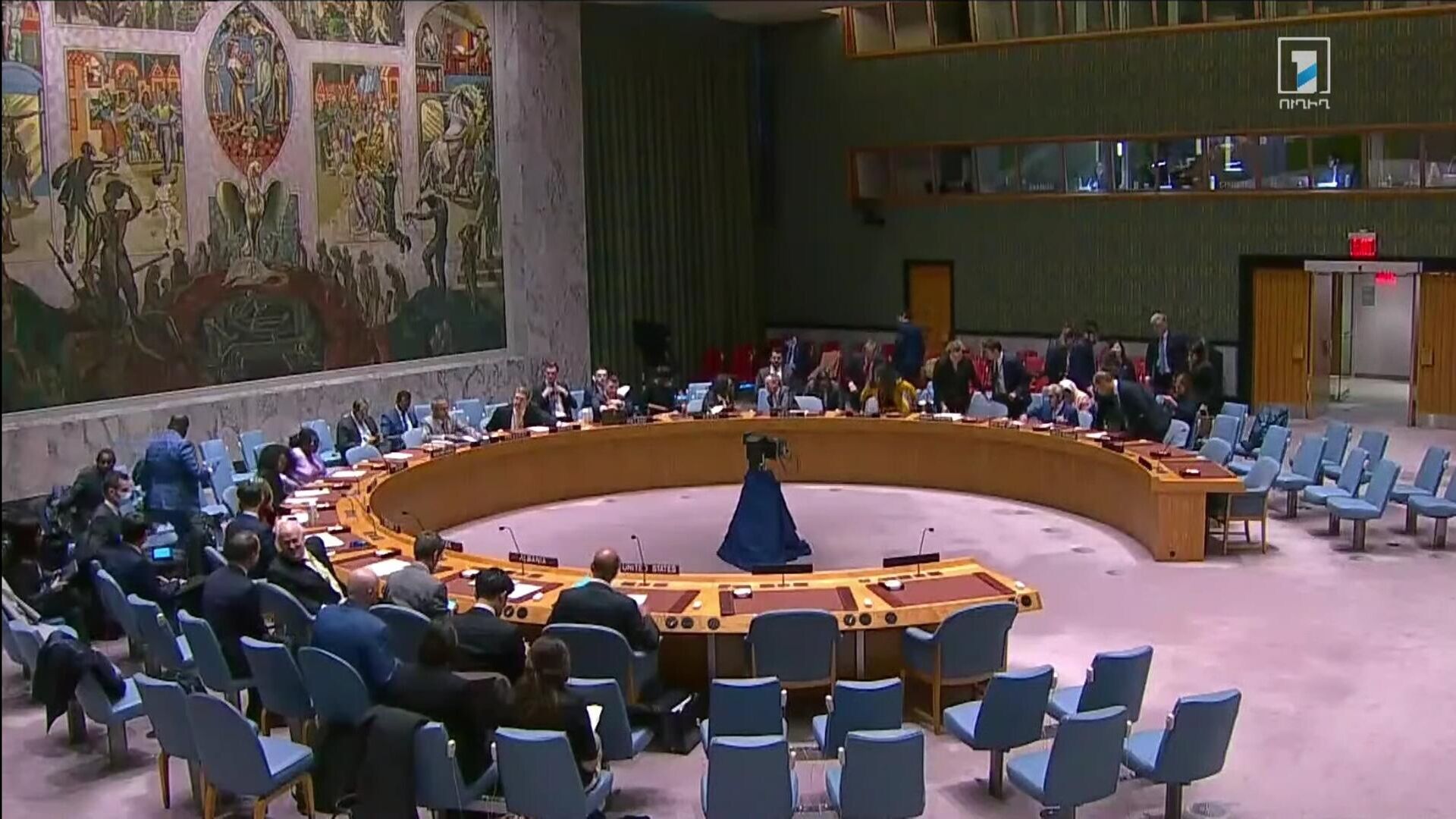“Scenario of sanctions against Azerbaijan not being discussed” – Thomas de Waal
Interview with Thomas de Waal
“There are serious fears that the fate of the Armenians of Karabakh and the issue of the Zangezur corridor will be decided on the ground and not through negotiations,” Thomas de Waal, a leading analyst at the Carnegie Endowment and an expert on the Karabakh conflict, said regarding the crisis in Nagorno-Karabakh.
In an interview with Radio Azatutyun (Liberty), he said there are serious attempts to resume the Armenian-Azerbaijani talks in Brussels in January, but “so far the situation is very serious.”
The analyst expressed his opinion on the Lachin corridor blockade, reasons for Russian inaction, and the likelihood of a new war and dialogue between Baku and the Karabakh Armenians.
“Pressure is caused not only by the Lachin corridor”
According to de Waal, Baku’s concerns about the transparency of the process of establishing movement along the Lachin corridor – be it mines, weapons, or people of any nationality – are “pragmatic”.
“There was no transparent policy, and in this sense, concerns can be understood. Of course, this is not a reason to completely close the Lachin corridor and blockade Karabakh, but I think that if negotiations are underway now, and this is right, then the agenda is a question of a more transparent policy of who may pass through the corridor,” de Waal said.
He also recalled that Aliyev’s ambitions after winning the 2020 Karabakh war were high, because “this blockade and pressure are not only due to the Lachin corridor”, but about wanting more than he was able to get from Armenia.
It is likely that after the unblocking of the corridor,many Armenians will leave Nagorno-Karabakh due to “unbearable conditions.”
“Perhaps, this is Azerbaijan’s tactic so that as many Armenians as possible simply leave NK without conflict,” de Waal maintained.
“Moscow does not want to irritate Azerbaijan”
According to de Waal, it may be in a week that “we will witness the activation of Moscow.” He says he does not have an answer to the question of why Moscow is not interfering in what is happening in NK in the zone of its responsibility. He believes there is a more general reason — all of Russia’s military, economic and political resources are now directed to Ukraine.
“Of course, the peacekeeping mission in Karabakh remains, but it is not as strong, not as professional as it was, say, a year ago.”
De Waal reasons that Moscow has been trying to maintain good relations with both Yerevan and Baku for many years, because “the Russians do not want to irritate Azerbaijan”.
“But what is happening now, it sort of undermines the November 2020 agreements, and because it is the responsibility of Russia, the Russian mission in Karabakh, to open the Lachin road.”
“Sanctions are the last weapon”
Speaking of the possibility of applying sanctions against Azerbaijan, de Waal stressed that they are the last weapon, and added that that scenario is not currently being considered. According to him, the reason is that the West actually wants to cooperate with Azerbaijan:
“At the moment, the sympathies of the West are rather on the side of Armenia, but in this decades-long conflict, the West believes there are no angels.”
Aliyev is not interested in a new large-scale conflict
According to de Waal, 2023 will be a busy and difficult year. While he hopes that there will be no new conflict, he immediately says that “there are already signs of it”, and that serious negotiations are not underway.
On the issue of the inevitability of war, he suggested that even in the event of resumption of hostilities, the scale of it compared to the 44-day war would be smaller, if only because “Armenia’s military resources are not as extensive.”
“In my opinion, President Aliyev is not interested in a new full-scale conflict. But if he doesn’t het what he wants, there will be more pressure on Armenia, perhaps,” de Waal maintained.
“Moscow is not against pressure on Armenians”
According to de Waal, Azerbaijan and Russia expected the signing of a peace treaty in 2022, but “they got the impression that Armenia was dragging out negotiations.”
“As before the start of the 2020 war, Moscow is not against pressure on the Armenians,” he says.
“Russia has always, and this has been the case for thirty years, maneuvered between Armenia and Azerbaijan. Of course, there is Moscow’s interest that the road to Nakhichevan be opened and that the security of this road be provided by the FSB, as written in the 2020 agreement. But there is another interest of Moscow that the mission in Karabakh stay for a longer period, especially after 2025 [the period of stay of peacekeepers in NK determined by the trilateral agreement of 2020].”
“The Vardanyan factor complicated the Baku-Stepanakert negotiation process”
De Waal believes that negotiations between Nagorno-Karabakh and Azerbaijan are ongoing, but in a “non-advertised format.” The process is complicated by the appointment of prominent businessman Ruben Vardanyan to the post of state minister.
“He is a stronger, more authoritative figure, while in Baku they thought they would be negotiating with the local Armenians.”
While de Waal does not consider Vardanyan a Kremlin puppet, he believes there may be an economic conflict between Russia and Azerbaijan regarding mineral deposits in the region.
“The fate of the Karabakh Armenians is the root of the conflict”
De Waal maintains that “an attempt to resolve the issue by force will mean a new conflict,” which will not go quietly and smoothly for Baku.
“And I think that many people in Baku really understand this. They have a maximalist position because they have so many advantages, as they see it. But they also understand that they need to be more careful, because if there is a new conflict, even a small one, then the corridor to Nakhichevan [referring to the so-called Zangezur corridor] will also be closed.”
He does not believe that the negotiation process on the Nagorno-Karabakh issue has reached an impasse, and says that negotiations will not stall “until an agreement is reached or a war begins.” He maintains that if Azerbaijan escalates, this will be followed by a reaction from both Russia and the West.
“The European Union is a more neutral, authoritative mediator”
De Waal says the EU has much more credibility in both Azerbaijan and Armenia, but less so in Nagorno-Karabakh, and the more it is involved in the process the better, but also thinks the two nations involved are the main players.
“There is hope that the EU border mission will be resumed this year and that a new round of negotiations will begin, mediated by [European Council President] Charles Michel, between Aliyev and Pashinyan. I simply don’t see another option, and I think that there is an understanding both in Baku and Yerevan that much can be achieved peacefully in this way.”
“We need to find an alternative to the ethnic cleansing of Armenians”
Thomas de Waal does not consider military support to Armenia from the West realistic. Western partners are trying to use methods of soft intervention in the region, through observers, economic and technical assistance.
“The main security factor remains the Russian mission in Karabakh. Even during the war in Ukraine, this remains a fact. It’s time, in my opinion, to start discussing what will happen in Karabakh in 2025 — whether it will be a Russian or international mission, whether there will be observers.”
De Waal stresses that an alternative must be found to “the ethnic cleansing of Armenians, which in itself is not only a tragedy, but also a path to a new escalation, a new conflict.”
Follow us – Twitter | Facebook | Instagram
Interview with Thomas de Waal






















